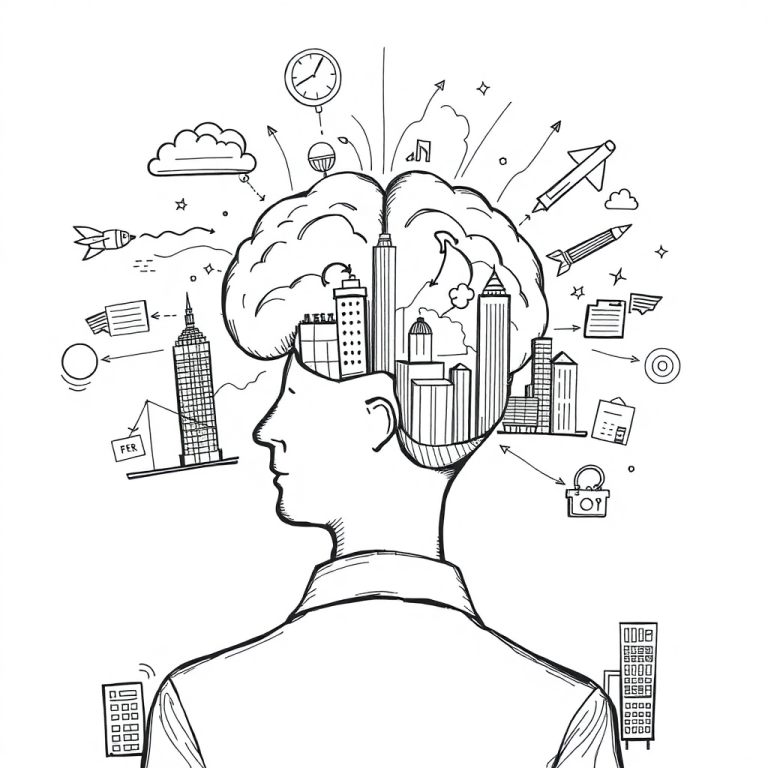Understanding Hypervigilance Enhanced State Of Sensory Sensitivity Psychology
Understanding Hypervigilance
Its Psychology And Effects
In the fast-paced and often unpredictable world we live in, many people find themselves constantly on alert, hyper-aware of their surroundings and potential threats. This heightened state of awareness is known as hypervigilance. While it can be beneficial in certain situations, prolonged hypervigilance can have a profound impact on an individual’s mental and physical well-being.
What is Hypervigilance?
Hypervigilance is an enhanced state of sensory sensitivity accompanied by an exaggerated intensity of behaviors aimed at detecting threats. People experiencing hypervigilance may find themselves constantly scanning their environment for danger, feeling on edge, and having difficulty relaxing. This state is often associated with anxiety disorders, post-traumatic stress disorder (PTSD), and other mental health conditions.

The Psychology Behind Hypervigilance
Hypervigilance is thought to be a coping mechanism that evolved as a survival strategy. In dangerous or life-threatening situations, being hyper-aware of one’s surroundings could mean the difference between life and death. However, in modern society, where such threats are less common, this heightened state of alertness can become maladaptive.
Psychological Factors Contributing to Hypervigilance
Traumatic experiences, especially those involving threat or harm, can trigger hypervigilance. The brain becomes conditioned to anticipate danger, leading to a heightened state of awareness. Generalized anxiety and panic disorders can cause individuals to feel constantly on edge, expecting something bad to happen. This perpetual state of worry can manifest as hypervigilance. Post-traumatic stress disorder is a significant contributor to hypervigilance. Individuals with PTSD often relive traumatic events and may constantly monitor their environment to avoid triggers.
Effects of Hypervigilance
While hypervigilance can occasionally be beneficial in preventing harm, its chronic presence can have detrimental effects on an individual’s life.
Mental Health
Mental Health and Physical Health Effects
Constantly being on high alert can lead to chronic stress, anxiety, and depression. The brain’s continuous state of readiness depletes mental resources and contributes to emotional exhaustion. The body’s prolonged stress response can lead to various physical health issues, including headaches, muscle tension, digestive problems, and weakened immune function.
Impact on Relationships and Sleep
Hypervigilance can strain personal relationships. Individuals may become irritable, distant, or overly controlling, which can create conflicts with family, friends, and colleagues. Difficulty relaxing and constant worry can lead to insomnia or poor-quality sleep, further exacerbating mental and physical health problems.

Coping
Coping with Hypervigilance
Managing hypervigilance requires addressing its root causes and developing healthy coping mechanisms.
Therapeutic and Mindfulness Techniques
Cognitive-behavioral therapy (CBT) and other forms of psychotherapy can help individuals process traumatic experiences and develop healthier thought patterns. Practices such as meditation, deep breathing, and progressive muscle relaxation can help calm the mind and reduce the intensity of hypervigilant behaviors.
Support Systems and Healthy Lifestyle
Building a strong support network of friends, family, and mental health professionals can provide comfort and reassurance. Regular exercise, a balanced diet, and adequate sleep can improve overall well-being and resilience against stress.

The Place Setting
Hypervigilance in the Workplace
Hypervigilance can spill over into the workplace, affecting job performance and relationships with colleagues. Employees who are hypervigilant may struggle to concentrate, feel overwhelmed by tasks, and have difficulty collaborating with others. Creating a supportive and understanding work environment can help mitigate these effects, allowing individuals to thrive professionally.
Hypervigilance in Children
Children can also experience hypervigilance, often as a result of trauma or anxiety. Hypervigilant children may exhibit behaviors such as excessive clinginess, difficulty focusing in school, and heightened sensitivity to sensory stimuli. Early intervention and supportive strategies from parents and educators can help children develop healthy coping mechanisms and reduce the impact of hypervigilance on their daily lives.
Preventive Measures
Taking preventive measures to reduce the risk of hypervigilance is essential. This includes promoting mental health awareness, providing access to resources and support, and fostering environments where individuals feel safe and secure. Encouraging open conversations about mental health and seeking help when needed can prevent hypervigilance from becoming a chronic issue.
Conclusion
Hypervigilance, while rooted in survival instincts, can become a debilitating condition when it persists in the absence of real threats. Understanding its psychology and effects is the first step towards managing it effectively and improving one’s quality of life. By addressing the underlying causes, developing healthy coping mechanisms, and fostering supportive environments, individuals can find relief from the constant state of alertness and regain a sense of peace and well-being.
Join the Discussion
Hypervigilance is a complex psychological phenomenon that can significantly impact an individual’s life. Have you or someone you know experienced hypervigilance? How did it affect daily life, relationships, or work? What coping strategies have been effective for you?








3 Comments